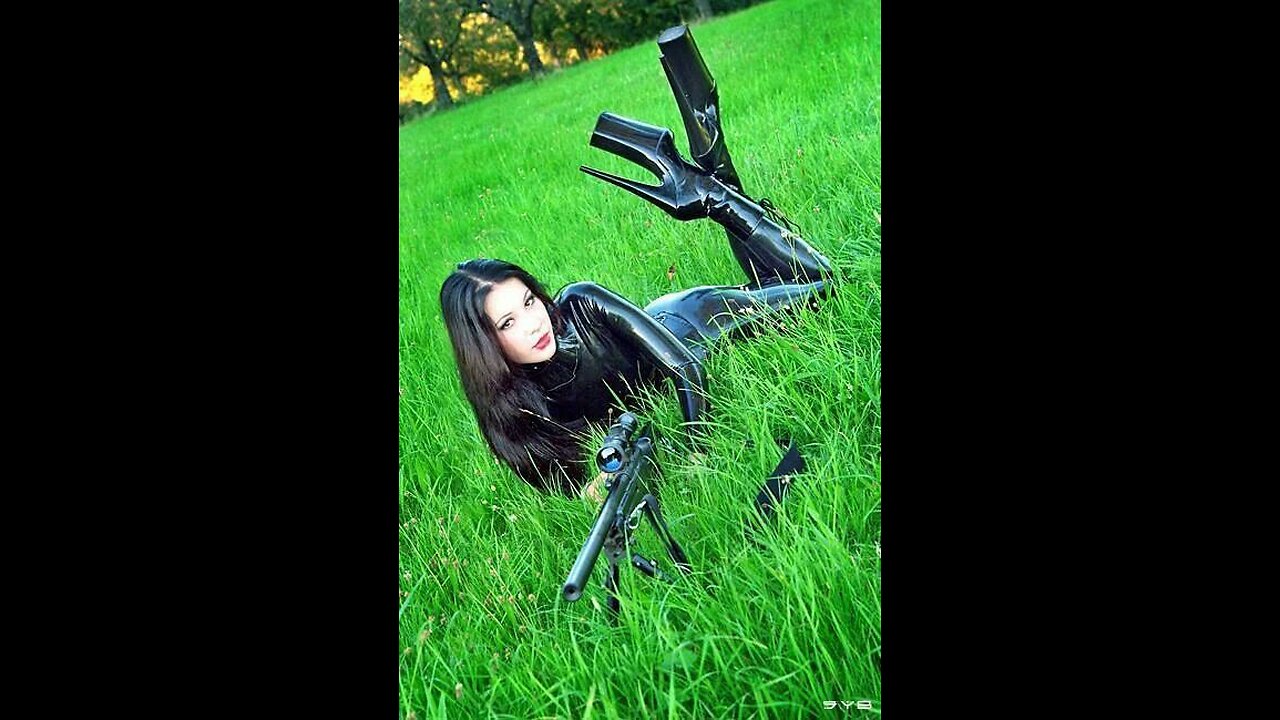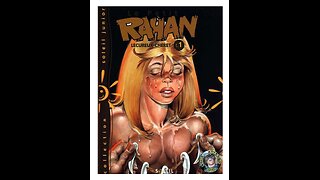Premium Only Content

The Biology of War. By Doctor G F Nicolai.
The Biology of War.
By Doctor G F Nicolai.
Professor of Physiology at Berlin University.
Translated from German By Constance and Julian Grande.
1919.
In preparing this work many of the numerous foot notes have been placed inline in the text or discarded, and the few figures and tables are abridged or described as far as possible. The numerous quotes in French, German, Russian and Latin are, were possible, translated into English.
This book was written while world war one was in progress. What does it tell us about the modern world? How the first fully industrial and global war changed the Earth? It is for the reader to decide.
"The Biology of War" was written in German, by a German, for Germans, written since the outbreak of war, in the German fortress of Graudenz in which the author was imprisoned.
If the German Government could have had its way, the book would never have seen the light, at any rate not so long as the war lasted ; but by a happy chance the manuscript was conveyed to Switzerland, where it was brought out by the leading German-Swiss publishing firm, Orell Fussli of Zurich.
When the book appeared, it was promptly barred from
Germany, the reasons for which will soon be obvious to anyone who reads it; and the author was condemned to five months' imprisonment in a common jail. At present he is interned in Germany, and carefully watched. Indeed, were it not for his position, he would probably still be in prison like Liebknecht, or would have shared the fate of Edith Cavell or Captain Fryatt.
Even before the war Doctor Nicolai was opposed to Prussian militarism, and when war broke out and Germany violated Belgian neutrality, he openly protested. For this he was degraded from his professorship and his property confiscated; and finally he was sent to Graudenz fortress, occupying during part of the time the room famous as the "Fritz Reuter room." Fritz Reuter, born 1810, died 1874, was condemned to death in 1833 because he belonged to a German students' society, a sentence commuted into one of thirty years' imprisonment.
Although the English translation has been simplified as much as possible without doing violence to the author's ideas, nevertheless the fact remains that this book is not for the intellectually indolent.
Certain passages it has not been possible to make very simple because the ideas themselves are profound, while the reasoning is throughout very close. The whole book is written from the standpoint of a biologist, while the medical man not infrequently appears in it as well: the breadth of the author's knowledge and the variety of his quotations, classical, literary, and historical, cannot fail to astonish every reader.
Since writing the above the world outside Germany has been gratified to learn that Professor Nicolai has escaped from Germany in a German aeroplane and has reached Denmark. The aeroplane was the "Albatross thirty four fifteenth" and of a somewhat old-fashioned type.
Doctor Nicolai's companion on board was Doctor Silberhorn, a German subaltern. A second aeroplane, the "F 16," accompanied the "Albatross thirty four fifteen.”
After all, war is a business like any other, and it is comparatively immaterial that it should be "cruel and violent."
Now, whoever learns one business forgets the others. A white man who has been accustomed to be treated somewhat as a superior being for a time in the tropics is often years before being able to feel at ease again in his native land. Anyone who has played at being master, even for only a few days, fights shy of being a servant again; and anyone who has played at soldiers for a time becomes a soldier.
If a nation is often at war, it becomes warlike, and unlearns its peaceful occupations. War, however, cannot do more than protect civilization, which must be built up on peace; and hence a time comes sooner or later to all martial peoples when they have nothing left to protect. All they can then do is to collapse. Usually a stronger nation has meantime appeared to rob them of everything which they once stole from others; but this need not happen, for a victorious nation perishes of internal decay bred of trust in its own victorious armies.
-
 31:16
31:16
PukeOnABook
1 month agoRahan. Episode 176. By Roger Lecureux. The Little Rahan. A Puke(TM) Comic.
44 -
 1:05:23
1:05:23
Man in America
12 hours agoSoaring Gold Exposes the Imminent Crash of the Old System w/ John Perez
35.6K6 -
 2:42:40
2:42:40
TruthStream with Joe and Scott
13 hours agoTHOMAS AND GROK: AI, Bible decodes, The JESUS Cube live 9/6 #487
19.5K1 -
 2:34:46
2:34:46
BlackDiamondGunsandGear
7 hours agoGet Prepped / After Hours Armory / LIVE SHOW /
13.5K1 -
 2:01:39
2:01:39
Tundra Tactical
6 hours ago $3.50 earned🛑LIVE NOW!! This spits in the face of the Second Amendment.🛑
22K2 -
 2:34:46
2:34:46
DLDAfterDark
5 hours ago $0.80 earnedIt's SHTF! Do You Have What You Need?? Let's Review Items & Priorities
15.4K4 -
 28:58
28:58
Stephen Gardner
6 hours ago🚨Explosive allegations: Rosie O’Donnell connects Trump to Epstein scandal!?
27.7K56 -
 LIVE
LIVE
SavageJayGatsby
2 days agoSpicy Saturday | Let's Play: Grounded
430 watching -
 2:06:27
2:06:27
MattMorseTV
7 hours ago $46.64 earned🔴Vance just went SCORCHED EARTH.🔴
125K179 -
 46:41
46:41
The Mel K Show
12 hours agoMel K & Corey DeAngelis | The Hopelessly Captured Teacher’s Unions: Biggest Threat to Our Children & Future | 9-6-25
34.6K5